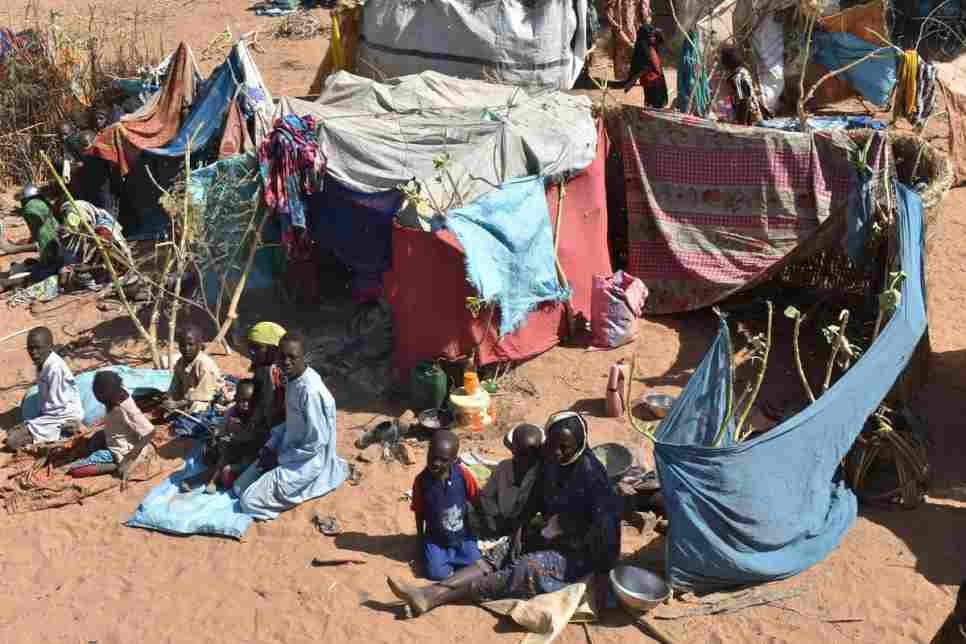The Darfur region in Sudan has recently experienced violent clashes between Arab and non-Arab groups, resulting in at least 24 fatalities, dozens of homes destroyed, and an estimated 20,000 people displaced. The fighting erupted on Saturday in the town of Foro Baranga between Arab tribes and the non-Arab Masalit group, located approximately 115 miles from Geneina, the capital of West Darfur state.
In response to the violence in the Darfur region, Sudanese authorities declared a night curfew and a month-long state of emergency across West Darfur. Mohammed Hussein Teeman, a representative of the Foro Baranga community council, reported that the situation had stabilized by Wednesday following the deployment of security forces to the area.
According to the United Nations Office for the Coordination of Humanitarian Affairs (OCHA), around 50 homes in the Darfur region were burned during the conflict, displacing approximately 4,000 families. The region, which is the size of France, has a long history of ethnic clashes, dating back to the 2003 civil war that pitted ethnic minority rebels against the Arab-dominated government of then-President Omar al-Bashir.
The conflict in the Darfur region resulted in the deaths of roughly 300,000 people and the displacement of 2.5 million, according to the United Nations. Rights groups allege that many members of the notorious Janjaweed militia, who were responsible for atrocities during the civil war, have since been integrated into Sudan’s paramilitary Rapid Support Forces.
Tribal conflicts in the Darfur region have intensified since the 2020 end of a UN-African Union peacekeeping mission and a security vacuum created by the 2021 coup led by army chief Abdel Fattah al-Burhan. The OCHA reported that such conflicts led to the deaths of approximately 900 people and the displacement of nearly 300,000 throughout Sudan last year.
Last year, the International Criminal Court commenced its first trial for war crimes in the Darfur region, with senior Janjaweed militia leader Ali Muhammad Ali Abd al-Rahman, also known as Ali Kushayb, facing charges. Meanwhile, former President Bashir, who has been in custody since his 2019 ouster, is wanted by the ICC for charges of genocide, war crimes, and crimes against humanity in the Darfur region.
What is the The Masalit group ?
The Masalit people are an ethnic group predominantly found in the Darfur region of western Sudan and the neighbouring Wadai region of eastern Chad. They are one of the non-Arab tribes residing in the region and have a population of approximately 500,000 people. The Masalit people have their own distinct language, also known as Masalit, which belongs to the Nilo-Saharan language family. The majority of the Masalit population are Muslims, and they adhere to the Sunni branch of Islam.
The Masalit people have a rich cultural heritage and are known for their skills in agriculture and animal husbandry. They predominantly rely on subsistence farming, with millet, sorghum, and other crops being their primary agricultural produce. In addition to farming, the Masalit also raise cattle, goats, and sheep, which are vital for their livelihood and cultural practices. Cattle are particularly important, as they serve not only as a source of food but also as a symbol of wealth and social status within the community. Furthermore, the Masalit people maintain a strong connection to their land, with their traditional leadership system playing a vital role in governing their communities and resolving disputes.
Historically, the Masalit people have faced significant challenges in the Darfur region, particularly during the civil war that began in 2003. As a non-Arab ethnic group, the Masalit were targeted by the Arab-dominated government of then-President Omar al-Bashir, who sought to suppress the rebellion of ethnic minority groups in the region. The Masalit, along with other non-Arab groups such as the Fur and Zaghawa, were subjected to violent attacks and human rights abuses at the hands of the notorious Janjaweed militia. These acts of violence led to the deaths of thousands of Masalit people and the displacement of many more.
Image Credit: Aristophane Ngargoune/UNHCR




